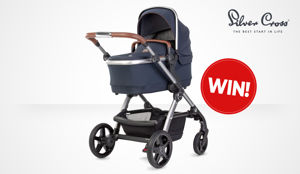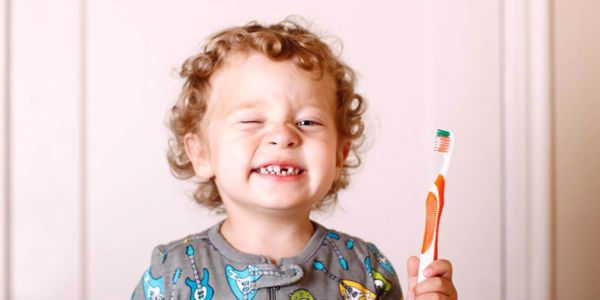It’s time to say goodbye to those gummy smiles and hello to big toothy grins!
Teething is one of those things that every baby has to go through when they reach a certain age, and whilst it’s not nice, teething pain doesn’t last long. There are also things you can do to help ease your baby’s symptoms.
What is Teething?
Teething is when your baby’s milk (or deciduous) teeth burst through their gums. This is often called ‘cutting’.
Babies are born with their milk teeth already in their jaw, just below their gums. These will slowly start to erupt over the next couple of years until your baby has all their milk teeth.
Your baby will have approximately 20 teeth that will need to appear.
What are the Signs of Teething?
When your baby starts to show signs of teething, it can be simultaneously exciting and stressful. It’s exciting because it’s a sign your little one is hitting another major milestone - hooray! But it can be stressful because your once smiley bundle of joy has turned into a gummy munching monster.
You’ll usually know when your baby has started teething because they’ll:
- Be drooling a LOT more - which can often cause a very sore-looking facial rash
- Be biting down or ‘gumming’ all sorts of things - including you!
- Be grumpy and irritable
- Have super red gums
- Sometimes have a loss of appetite
- Sometimes suck a lot more, like their bottle teats or hands
- Have ‘tooth buds’ in their gum line - these are bumps under your baby’s gum where their tooth is trying to force its way through
Remember, each baby is unique so their teething experience will be unique, too. You know your baby best!
With a little bit of patience and a lot of cuddles, your little one will be showing off their new pearly whites in no time.
Check out teething symptoms on the NHS website for more information.
What Causes Teething Pain?
Teething pain is caused by your baby’s teeth pushing through their gums. Their gums will swell and be tender for a few days whilst the tooth is working its way up.
The level of pain your baby feels depends on how well your baby copes with pain and the thickness of their gums.
Each tooth will come through at different stages, with the central incisors usually first.
When Do Babies Start Teething?
Most babies will start teething at around 6 months old, but some may start as early as four months or as late as 12, it all depends on your baby!
However, most children will have finished getting all their milk teeth by the time they’re three years old.
What’s Pre-Teething?
Pre-teething is your baby’s way of preparing for the months ahead. They’ll usually show all the signs of teething, yet no teeth will break through. This can happen as early as three months!
How Long Does Teething Pain Last?
How long teething pain lasts really does depend on how your child is with pain, but they’ll probably be uncomfortable for a few days to a week whilst the tooth ‘cuts’, or pushes through.
But good news! Once the tooth is through there's no more pain. Phew!
Teething vs Illness?
Please be cautious not to label all your baby’s symptoms as possible teething ones. It’s been shown that symptoms that are not linked to teething are:
- A fever over 38°C
- Vomiting
- Coughing
- Sleep disturbances
- Diarrhoea
- A rash on their belly, back, or limbs
- Irritability that cannot be soothed
If your baby is showing any of the above symptoms, it’s best to contact your GP for further guidance.
Quick Remedies for Teething Pain
The good news is that you can try a few quick, cheap, and easy remedies to help your little one deal with their teething pain. You can:
- Rub their gums with a clean finger: it’s thought the extra pressure on their gums relieves some of the pain.
- Get a teething ring: one that can be kept in the fridge so it’s cool and soothing on their gums is always good. Remember NOT to put any teething rings in the freezer as this can cause them to crack or become too hard for your baby’s delicate gums.
- A bib: whilst a bib won’t ease teething pain, it’ll help to keep your baby’s clothes, neck, and chin dry to minimise the discomfort of a sore teething rash.
- Foods to chew: only if your child is over 6 months old.
- Baby/infant paracetamol or ibuprofen: usually these are given as a last resort after trying the remedies above.







